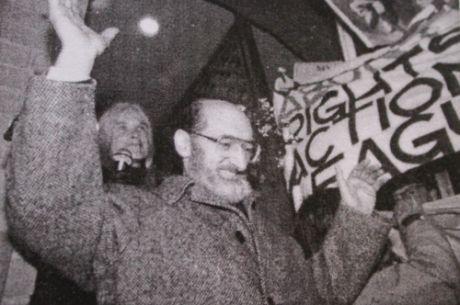Features
You are here
The Morgentaler decision, 25 years on

January 19, 2013
January 28 will be the 25th anniversary of the Morgentaler decision, when the Supreme Court of Canada struck down the abortion law—making Canada the only country in the world with no legal restriction on abortion. This was a tremendous victory for the women’s movement and these lessons are crucial to resisting the ongoing threats to choice while fighting for broader reproductive justice.
Capitalism and the state
Controlling women’s bodies has been a central feature of capitalism—to impose the heterosexist nuclear family where women do unpaid labour raising the next generation of workers, and to enforce racist and ableist policies. In 1869 Canada criminalized abortion and even the dissemination of information about birth control, under Section 251 of the Criminal Code.
Dr. Romalis, a provider who has survived two assassination attempts by the “pro-life” movement, described hospitals when abortion was illegal: “It’s hard to believe now, but in those days, they had one ward dedicated exclusively to septic complications of pregnancy. About 90 per cent of the patients were there with complications of septic abortion. The ward had about 40 beds, in addition to extra beds which lined the halls. Each day we admitted between 10-30 septic abortion patients. We had about one death a month, usually from septic shock associated with hemorrhage.”
Wealthy white women had access to abortion, but poor and working class women were denied, indigenous and disabled women had forced sterilization, and lesbian and trans women were criminalized and pathologized.
A hundred years later Parliament amended the Section 251 to decriminalize contraception, but abortion was only granted in situations deemed “medically necessary” by Therapeutic Abortion Committees. When Dr. Morgentaler began performing abortions in defiance of the law in 1969 the police raided his clinics, the courts put him on trial, and the anti-choice movement picketed his clinics.
The fight for choice
The pro-choice movement focused on overturning the law by mobilized a broad-based movement with a reproductive justice perspective—building unity between Quebec and English Canada, fighting the sterilization of aboriginal and disabled women and the criminalization of queer women, mobilizing an abortion caravan and clinic defense, and putting access for abortion alongside the fight for equal pay, child care and good jobs. Making choice a class issue meant that even juries composed of men refused to find Morgentaler guilty.
After 19 years of mobilizing, the movement succeeded on January 28, 1988 when the Supreme Court struck down the abortion law as unconstitutional—arguing it violated Section 7 of the Charter of Rights and Freedoms by infringing on a woman’s right to life, liberty and security of the person.
The anti-choice movement has been trying to create a panic around Canada having no law on abortion, based on a paternalistic and sexist belief that women can’t be trusted to control their own bodies and that the state has to police their reproduction. But Canada has a lower rate of abortion than the US because of greater sexual education and contraception availability; the lack of a law does not raise the abortion rate but only makes it safer, because women have less barriers to accessing abortion earlier in pregnancy.
The movement today
The problem in Canada is not the lack of legal barriers, but the ongoing socioeconomic barriers that still exist to abortion and reproductive justice—from the lack of coverage of abortion in New Brunswick, the lack of providers in PEI in rural communities, and the lack of economic and sexual freedom for poor and working class women and those further oppressed on the basis of race, disability, or sexuality.
The Tories are trying to further restrict a woman’s right to chose with continual anti-choice motions or bills that are increasingly masquerading as helping women—from Bill C-510 against “coerced abortion”, to Motion 408 against “discrimination against women through sex-selection abortion.” These state interventions pay lip service to women while trying to further control their bodies. The end result is women dying, like in Ireland where Savita Halappanavar bled to death while miscarrying because hospitals refused to provide an abortion. But the hypocrisy of the Tory bills and motions also reveals they are unable to directly attack choice and have to do so by stealth for fear of remobilizing the women’s movement.
January 28 is an occasion to celebrate a major victory for the women’s movement, and to revive those lessons so we can beat back the Tory attacks, expand abortion access, and fight for broader reproductive justice.
On January 28 join the Ontario Coalition for Abortion Clinics to celebrate the 25th anniversary of the Supreme Court decision that repealed Canada’s abortion law, as well as to recognize the ongoing struggle for reproductive justice across Canada today.
Section:
- Log in to post comments









